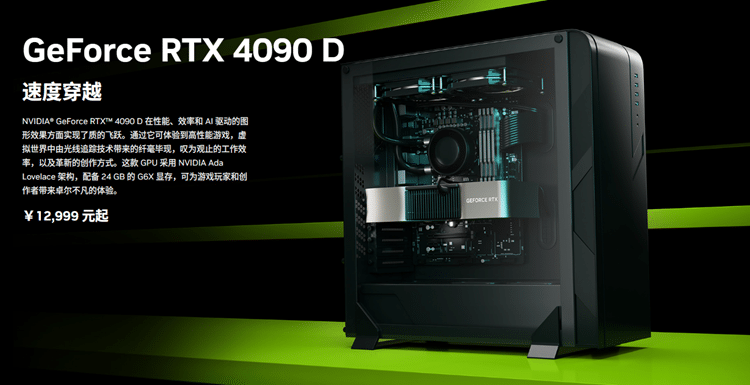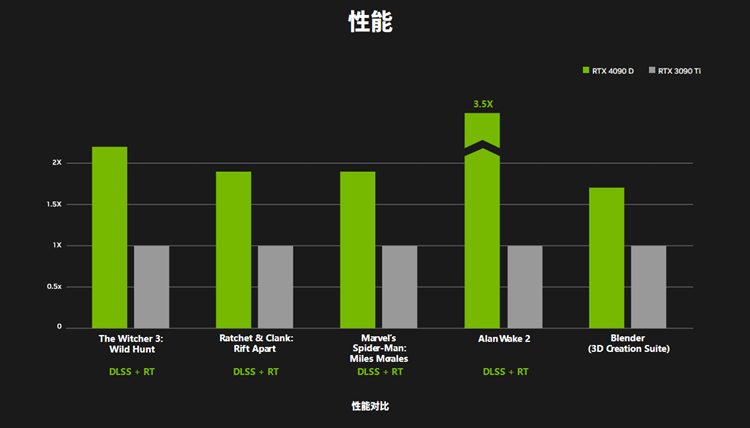NVIDIA’s GeForce RTX 4090 graphics card reigns supreme today and has unmatched performance. However, challenges have emerged due to various factors, preventing its full entry into the Chinese mainland market, and causing Nvidia significant headaches. Consequently, last night, Nvidia introduced the GeForce RTX 4090 D. A variant specifically tailored for the Chinese market, aiming to circumvent these restrictions and cater to gamers’ needs. Nevertheless, as anticipated, the GeForce RTX 4090 D faces significant CUDA and AI computing power reductions, yet its price remains unchanged.
NVIDIA GeForce RTX 4090 D Released
To comply with regulations, NVIDIA reduced the CUDA cores of the GeForce RTX 4090 D from the original 16,384 to 14,592. Additionally, to improve gaming performance, they increased the card’s frequency. Official charts suggest the performance gap is around 5%, a marginal difference for a card at the GeForce RTX 4090’s level. However, Nvidia also imposed a ban on overclocking to avoid further sanctions.
Regarding the NVIDIA RTX 4090 D, It has 14592 CUDA cores, reaches an acceleration frequency of 2.52GHz, and includes a video memory of 24GB 384bit GDDR6X. Furthermore, it consumes a total of 425W for the graphics card and 302W during regular gaming.
On the other hand, the RTX 4090 outperforms in some aspects. It features 16384 CUDA cores and maintains the same acceleration frequency of 2.52GHz. Additionally, it matches the video memory with 24GB 384bit GDDR6X. However, it demands slightly more power, consuming 450W for the graphics card and 315W for regular gaming.
Regarding the GeForce RTX 4090 D, the reduction in AI computing power is more pronounced, reportedly halving compared to the original RTX 4090. This cutback might slightly affect features like DLSS but significantly impacts AI rendering and other related uses, particularly for those relying on the GeForce RTX 4090 for computational tasks. It seems Nvidia’s focus with this special edition is primarily on gaming.
Price-wise, the GeForce RTX 4090 D remains at 12,999 yuan (about $1,835), not a penny less, a point of contention for consumers. The launch may have one upside: it could temper the rampant scalping of the standard GeForce RTX 4090, potentially leading to a slight price reduction.
Read Also: Nvidia RTX 4090 D Graphics Card For China Reportedly Uses AD102-250 GPU


